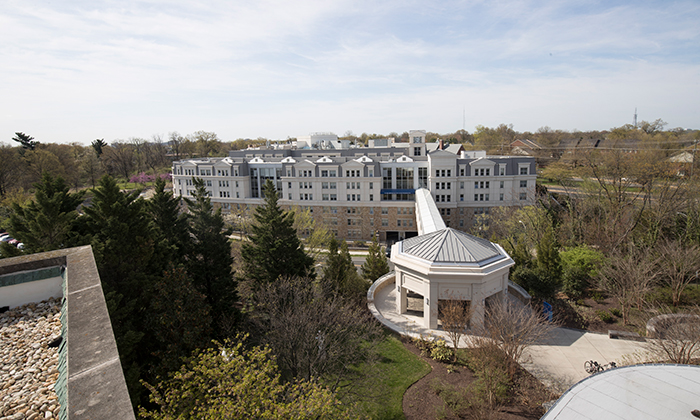This year, Marymount University plans to officially launch the Center for Optimal Aging – a central hub for community-based research, interdisciplinary education and community engagement programs to positively impact the quality of life of older adults.
The Center will connect interdisciplinary teams of Marymount faculty and students with community stakeholders to collaborate and jointly address health and social issues affecting older adults. It will be the first interdisciplinary research center to open at the University, which aims to create a wide range of new research initiatives following the recent reorganization of its academic structure and its strategic goal to achieve a Research II (High Research Activity) designation by the Carnegie Classification system.
“The Center for Optimal Aging will serve as a magnet hub for our faculty from different fields to pursue impactful interdisciplinary research while our students gain valuable experience in research and community service,” said Dr. Hesham El-Rewini, Provost and Senior Vice President of Marymount University. “The Center is a great example of how Marymount will be making a difference in the lives of an important sector of our society in Virginia and beyond.”
Marymount’s Center for Optimal Aging will fulfill a critical need for connecting and supporting aging-related service providers, community-based groups and professionals in identifying, implementing, evaluating and sustaining best practices to maximize the health and overall well-being of older adults. Best practices are affordable, accessible and evidence-based, as well as tailored to the unique issues of each community and individual. The Center will also address a range of chronic health conditions that are common among older adults, and which can have a major impact on optimal aging and are often a limiting factor to older adult engagement in meaningful life activities.
According to the Centers for Disease Control and Prevention (CDC), 90 percent of the nation’s $3.8 trillion in annual health care expenditures across all health groups goes toward the management of people with chronic and mental health conditions. This includes about $750 billion annually from Medicare, 94 percent of the total Medicare budget, going toward the 70 percent of older adults who have two or more chronic health conditions. Annual Medicare health care expenditures increase sharply as well with each additional chronic condition ($1,956 per year for individuals with 0-1 condition; $5,663 for 2-3 conditions; $11,028 for 4-5 conditions). In addition to the financial impact of chronic health conditions, the impact on an older adult’s quality of life can be significant.
The percentage of older adults within the overall population continues to grow as well. Adults over the age of 65 increased from 12.4 percent of the population in 2000 to 17 percent in 2020, and is estimated to jump to 20 percent by 2030.
“Preventing or minimizing the impact of even a portion of these chronic health conditions can substantially decrease health care costs and greatly improve a person’s quality of life,” explained Dr. Rita Wong, Associate Vice President for Research at Marymount University and the Interim Director of the Center for Optimal Aging. “We know there is a misalignment of community services and delivery models, as well as a shortage of aging-services personnel. Our new Center, however, will develop and implement more efficient and integrated models of care while we grow ‘age-friendly’ initiatives across the region.”
A growing list of U.S. communities, including several in Northern Virginia, aspire to “age-friendly” status as defined by the World Health Organization (WHO) and AARP. This status is granted to communities that meet established criteria across eight “livability” domains – outdoors spaces and buildings; transportation; housing; social participation; respect and social inclusion; civic participation and employment; communication and information; and community and health services. To learn more, click here.
A search for the Center’s Founding Director is underway. For more information about the position, click here.
Meanwhile, Dr. Wong is serving as Interim Director, and brings a well-established research and teaching background in the area of geriatric physical therapy. She is also currently leading an interdisciplinary, grant-supported team working with community groups to promote evidence-based falls prevention programs in older communities.
The Center for Optimal Aging will be funded through a combination of research grants, foundation gifts and revenues from external workshops, trainings and other services.





